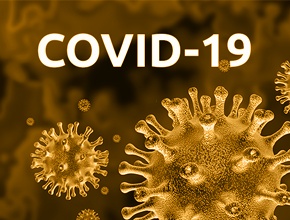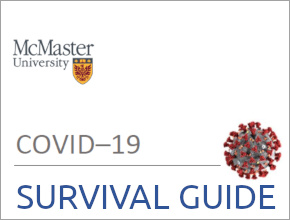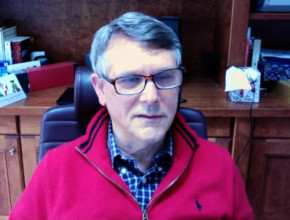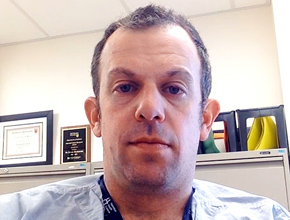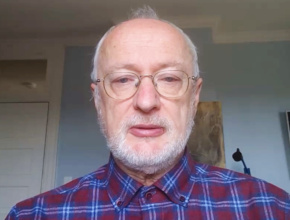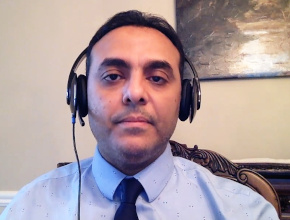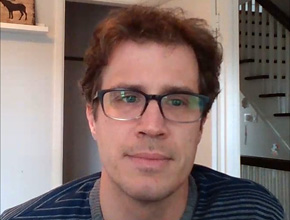This transcript was revised on April 16, 2020.
Dr Jean-Louis Vincent, professor of intensive care medicine at Université libre de Bruxelles, past president of the World Federation of Societies of Intensive and Critical Care Medicine and the European Society of Intensive Care Medicine, accomplished author and researcher, joins Dr Roman Jaeschke to discuss the currently available treatment options for coronavirus disease 2019 (COVID-19).
References
Taccone FS, Gorham J, Vincent JL. Hydroxychloroquine in the management of critically ill patients with COVID-19: the need for an evidence base. Lancet Respir Med. 2020. Published online April 15, 2020. doi: 10.1016/S2213-2600(20)30172-7For part 2 of this interview, click here.
Roman Jaeschke, MD, MSc: Good morning. Welcome to another edition of McMaster Perspective. Today is April 15. I have the pleasure of introducing Professor Jean-Louis Vincent, a professor of critical care at Université libre de Bruxelles and past president of the European Society of Intensive Care Medicine and the World Federation of Societies of Intensive and Critical Care Medicine. I don’t think any intensivist in the world needs this description.
Professor Vincent, a few questions. The first one: do you believe that we have reached the level where we could recommend some specific antiviral therapy for coronavirus disease 2019 (COVID-19)? The floor is yours.
Jean-Louis Vincent, MD, PhD: Thank you for asking me to address this question. The answer is no. There is nothing specific that we could recommend. We can only propose supportive care, with oxygen, continuous positive airway pressure (CPAP), and respiratory support. The use of corticosteroids has been debated, but in view of the immunosuppressive phase that could actually make things worse, and we do not recommend corticosteroids in these patients.
With respect to new forms of therapy or perhaps more classic antiviral therapies, I’m afraid there is nothing that has really been shown to be effective.
I enjoyed reading today an excellent review paper in the Journal of the American Medical Association (JAMA) of April 14. I think it’s very well done and quite comprehensive. I recommend everybody to read it.
Perhaps the most appealing option is remdesivir, which is an antiviral agent tried in other viral diseases, including Ebola and severe acute respiratory syndrome (SARS), with some positive effect. However, the only study we have so far was published in the New England Journal of Medicine (NEJM) a few days ago. It’s not randomized—it’s just compassionate use, where the company gave the drug to those who potentially could benefit from it. The results were good, but who knows, perhaps without the drug they could’ve been just as good, because the patients were in a way selected and the drug would not be given to patients who were not likely to improve.
We have had now in Europe and in the United States, under Donald Trump’s influence, a lot of discussions about hydroxychloroquine, perhaps in combination with azithromycin. This regimen was proposed by Professor Didier Raoult, who’s a quite known infectious disease person in Marseilles, France. We’ve just published today in The Lancet an editorial warning against this strategy, as the beneficial effects appear to be very minor and there is a risk of a cardiac problem due to prolongation of the QT interval. A Brazilian study has just been stopped for cardiac toxicity and there have been some fatal cases reported in France in particular. So this is not something that I would recommend.
Tocilizumab is an attractive option in what we call the cytokine storm, where there is the overwhelming host response that could injure the organs, including the lungs. But it needs to be tested. I hope it will work, but in exactly which stage of the disease or how to recognize the cytokine storm early—these are very complex questions.
We are quite excited with plasma—everywhere, including in Belgium. I’m very much involved in a clinical trial on plasma from convalescent people, those who had been recently sick and who have antibodies in their blood, because passive immune treatments make sense. It’s not new, it’s not revolutionary. It has been known for more than 100 years and it can make sense. There are now many people who had been sick recently and wanted to give their plasma to help others.
Unfortunately, there is no European trial on this. We have not succeeded in putting the Europeans together for this. There are separate studies in Germany, the Netherlands, France, Italy, and Belgium. But hopefully we’ll have some signals here and there that we’ll eventually be able to combine.
I have already spoken about steroids. The bottom line is that we need quick prospective randomized controlled trials. It’s the only way to make progress. Hopefully these can be conducted quite rapidly, because we have enough patients who could be enrolled in these trials. Some are platform trials or at least trials with 4 arms to try to make some quick progress.
I think these protocols in general are good and even small institutions, not academic, should be able to contribute. It should be quite easy. The ethical aspects are not major. And if we want to maximize the chances of patients to benefit from a new treatment, we can think about innovative ways to develop the protocol. It could be either a 2:1 randomization—that’s what we started to do in Belgium for plasma administration: 2 patients out of 3 will receive the plasma, and 1 patient will not receive it—and there’s also this possible protocol including the play-the-winner strategy, where you could start with 1:1 randomization but after 15 or 20 patients, if you see they appear to benefit from an intervention, then you could move to, for instance, 2:1 in favor of the effective treatment. That’s what we should do.
I don’t think we should use these strategies on a compassionate basis because then we lose the information and we do not make progress at all. I insisted on hydroxychloroquine, because it’s available. It has been available in Europe for many years, and of course it can potentially be used in some rheumatoid diseases. People can get it as the drug called Plaquenil around here. So that’s a big issue. I tried to convince my friends not to take it, telling them that it could potentially be more harmful than beneficial.
We should move quickly with prospective randomized controlled trials. We should not use any of these therapies on a compassionate basis, even plasma. It’s better to randomize. Plasma is relatively safe, but who knows: if you give it late, there may be some unexpected reactions that could, for instance, make the acute respiratory distress syndrome (ARDS) worse. So we must be careful, regardless of the strategy.
To my friends who are patients not in hospitals and are not so sick, I even insist they do not take antipyretic medications. Leave acetaminophen (INN paracetamol) aside, don’t take Dafalgan (one of the brand names for acetaminophen). Don’t take that. If you have fever, it could be protective. Don’t forget that the coronavirus doesn’t like high temperature. Fever is not high temperature, but if we develop fever, it can be a protective mechanism. Don’t try to keep the body temperature normal at all times. That may not be a good idea.
So minimal therapeutic interventions except when these therapeutic interventions are shown to be effective. That’s my belief.
Roman Jaeschke: As usual, not only decisive, but also a very entertaining presentation.
 English
English
 Español
Español
 українська
українська

